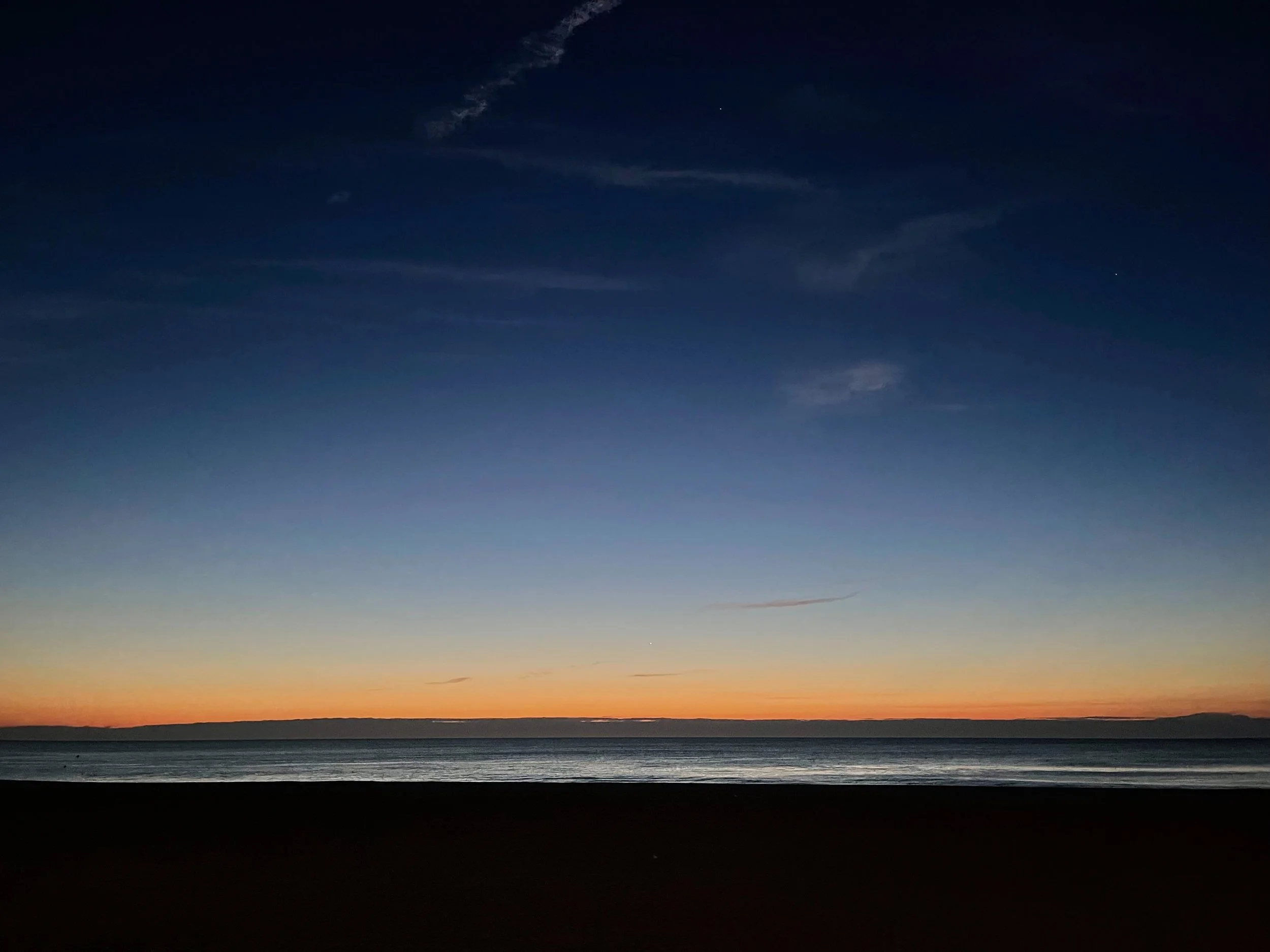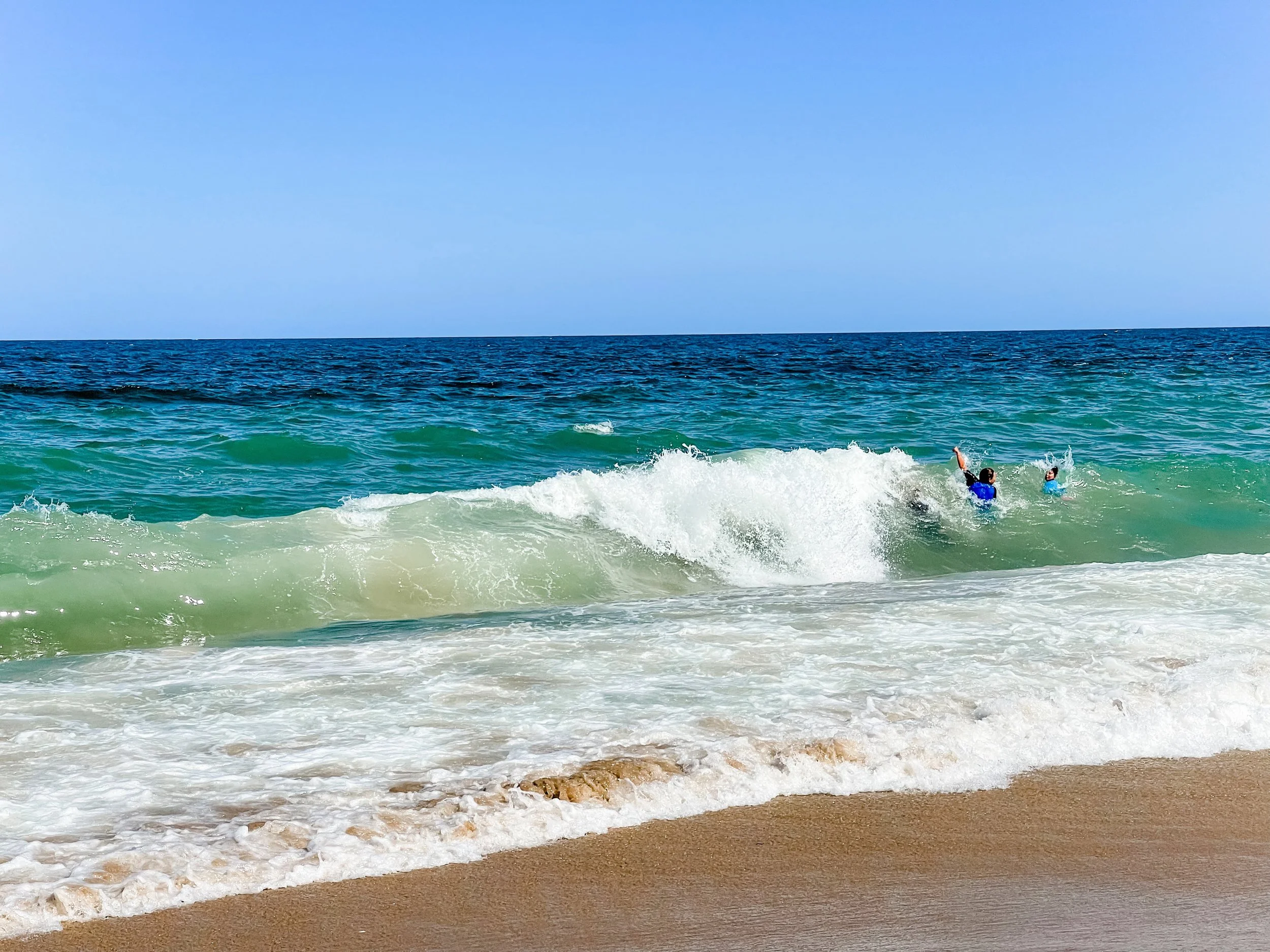Vacation report back - the struggles and rewards of replenishment
Summer vacation already seems like a far away dream, but having gone into August with the intention of vacationing differently, I wanted to make sure I reported back before it receded into the distance altogether.
August was incredible for me, and a huge step forward from last year. As I’ve mentioned before, every year we take the month of August as a break from external meetings and facilitation in order to prioritize our own strategic planning, professional development and self-care.
This year, not only did we not have meetings or external facilitation, but we actually really did wrap up work with our clients so that we weren’t working on deliverables during this month.
That doesn’t mean we didn’t do client work at all, but it created space to do the critical work of reflecting, processing, and planning at the strategic and creative level for the work ahead.
Something I got the chance to dive deeper on this month, reading On Being A Supervisee: Creating Learning Partnerships was experiential learning, which is not just the process of learning from experience, whether real life experiences or experiences created within the learning environment.
Experiential learning, as defined by Kolb (1984), articulates four stages of the experiential learning cycle:
Activity - concrete experience. Try it out, see what happens.
Reflection - reflective observation. Analyze the experience. View from multiple perspectives.
Learning - abstract conceptualization. Connect ideas. Link to existing knowledge and understanding.
Application - active experimentation. Formulate a hypothesis. Plan action and test it.
This helped me think about CCI’s model that seeks to balance theory and practice, knowledge and action, and emphasizes reflection and iteration.
Sometimes there is too much action without enough time for reflection, learning and application - this can lead to burnout, not to mean increasingly ineffective action.
At the same time, there can also be a kind of paralysis that comes from a focus on knowledge and theory without a bridge into action.
In fact, as noted in On Being A Supervisee, individuals, but I would say a team or even an organization, might get stuck at any one of the stages of experiential learning.
What does this have to do with vacation? Well, for me, August, and especially my time on vacation, was much needed time for focused, dedicated and intentional reflection and learning.
This built in time to pause and reflect on our entire our entire body of work felt essential and incredibly productive.
I also had a mini-epiphany which was that, with this month in August that we have created, It makes sense to do business planning on the academic calendar, from September to August. Who has time to do annual planning in December after all?!!!
Of course, it’s not enough to have reflection and learning time In August, it needs to be operationalized to some degree year round. At CCI we have times built in for this weekly as well as every other month but again, that time is often spent in “action” on client deliverables. With much of our work for the coming year already committed, this is something we’ll have to shift to over time - this kind of shift doesn’t just happen. It requires an adjustment to our business model.
In the meantime, though, something I did do over the break was redesign my own personal schedule so I can go swimming every morning. Yes that’s right, every morning. As a mom of two kids, with a spouse who also works full time, this didn’t even seem conceivable just a short time ago, but I tried swimming daily for a week in June, and then for the entire month of August, and it became apparent that this was worth prioritizing. I’m not very athletic, I never have been, and although I’ve had periods of regular activity, nothing has really ever stuck. Who knows what will happen with swimming, and I did used to swim weekly before the pandemic, but for right now, it’s what I need not just to move my body, but to have that built in time for reflection.
Swimming is so productive for me that sometimes I feel like it should be considered “billable” time! Already, having that time every day this month since coming back from vacation as part of my schedule, and not something I do “if I have time” or just at the weekend, feels like a game changer.
So what about my actual vacation?
Yes, a lot of this reflecting and processing happened while on vacation, which for us this year was two weeks at the beach in Delaware. I know I keep using the word amazing but there really is no other word - it was amazing in ways that I wasn’t expecting.
No I didn’t “unplug” completely for the two weeks, in fact I worked about 20 hours in total during those two weeks, which sounds like a lot, but most of it was fun, creative, replenishing work done early in the morning before my family was up, sitting by the water.
It felt like vacation in a way that I hadn’t felt in actually over three years I realized - pre-dating the pandemic. I think what made it feel like vacation was that, aside from one big scheduling project, it wasn’t stuff I HAD to get done.
Midway through the second week though I realized I needed to unplug completely and to get off Slack (to which the rest of the team responded with a resounding “yes please!”)
I took the rest of the work items on my “wish list” off and this made space for me to spend that early morning time sitting on the beach watching the sun rise. PRICELESS.
I share all this not to brag about my vacation or how hard I work but to model the struggle and rewards of replenishment that is critical to any work, but especially DEI work.
The work, especially for women of color, and even more so for Black women and those who face various multiple impacts of systemic oppression, even when healing, takes an incredible amount of not just emotional and intellectual energy, but I have found it takes PHYSICAL energy. We are healing things that we hold in our bodies after all.
Healing takes energy.
And the pandemic itself has been variously exhausting. My vacation gave me the space to recognize and acknowledge, at least for myself, all the ways in which we are still experiencing as well as recovering from its impacts. Socio-economic and organizational privilege can mitigate those impacts but it can’t erase them.
In doing DEI work we have to reclaim our humanity as well as make space for that of others.
What do systems that humanize look like? What does it mean to operationalized recovery, replenishment and healing?
My body carries trauma, but it also carries healing. And now it carries the memory of open air lap swimming to the sound of the ocean in the background, the sand beneath my toes as I’m first on the beach for sunrise, and my kids bobbing in the waves with excitement, their happy screams only barely audible over the waves.
I carry that in my body now too.
Banner photo and all images by Alethea Fitzpatrick
Self-coaching for DEI Advocates and Leaders
Join me for a free weekly email series and check-in on co-creating real and lasting shifts towards diversity, equity, inclusion and antiracism at your company or organization. Sign up here.



